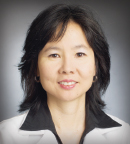Taking aspirin daily does not prevent breast cancer recurrence, according to research presented during the February ASCO Plenary Series Program.1
Results of the double-blind phase III study of more than 3,000 patients with high-risk, HER2-negative breast cancer showed no improvement in invasive disease–free survival among those randomly assigned to receive aspirin vs placebo daily for 5 years. After a median follow-up of 20 months, the study was closed early because data showed it was unlikely that aspirin would be helpful in preventing breast cancer recurrence, authors of the study reported.

“Although inflammation may still play a role in cancer progression, aspirin is not recommended for prevention of breast cancer recurrence.”— Wendy Y. Chen, MD, MPH
Tweet this quote
“Although inflammation may still play a role in cancer progression, aspirin is not recommended for prevention of breast cancer recurrence,” said lead author Wendy Y. Chen, MD, MPH, a medical oncologist at the Dana-Farber Cancer Institute, Boston. “Aspirin may have different effects in other cancers such as colon or in different settings such as primary vs secondary prevention, but our results showed no benefit in terms of breast cancer invasive disease–free survival.”
According to Dr. Chen, a strong rationale supported the randomized study of aspirin as adjuvant therapy for breast cancer. Both in vitro and animal data have shown that aspirin and nonsteroidal anti-inflammatory agents can decrease breast cancer growth and invasiveness. Multiple epidemiologic studies of breast cancer survivors also reported improved breast cancer survival among regular users of aspirin.2 In addition, previous observational studies and cardiovascular disease trials have suggested that regular users of aspirin had a decreased risk of metastatic cancer of any kind.3
Study Details
The Aspirin After Breast Cancer (ABC) trial was the first randomized, placebo-controlled trial to evaluate the efficacy of aspirin in preventing breast cancer recurrence among breast cancer survivors. The study was also designed to assess toxicity in adherence.
Subjects enrolled were younger than age 70, because the adverse effects of aspirin are strongly age-related and increase after age 70, said Dr. Chen. In addition, all tumors had to be HER2-negative to ensure a high-risk population.
Patients were randomly assigned to 300 mg daily for 5 years vs placebo, and the study’s primary endpoint was invasive disease–free survival.
ABC Trial Stopped for Futility
Between 2017 and 2020, Dr. Chen and colleagues enrolled 3,021 patients with high-risk, HER2-negative breast cancer. As of January 14, 2022, median follow-up was 24 months, and the median time on treatment was 18 months.
With 111 invasive disease–free survival events in the aspirin arm and 90 events in the placebo arm, results of the study showed worse survival for aspirin users, although the difference was not statistically significant (hazard ratio [HR] = 1.25; P = .1258).
According to Dr. Chen, compliance was high and similar for both aspirin users and the placebo group. Off-protocol use of aspirin and nonsteroidal anti-inflammatory drugs was also low and comparable to other randomized trials, she added.
No difference in the frequency of grade 3 or 4 adverse events between the study arms was reported, and there were no grade 4 cardiac, hematologic, or gastrointestinal events due to aspirin. Dose reductions to 100 mg were uncommon in both study arms, and no new significant safety concerns were identified.
“These data showed no benefit of aspirin at 300 mg daily in terms of breast cancer invasive disease–free survival,” stated Dr. Chen. “Although follow-up was short, the futility bound was clearly crossed, and there was unlikely to be any benefit associated with aspirin with further follow-up.”
Dr. Chen also noted the recent publication of two adjuvant celecoxib trials. In both randomized controlled trials, the nonsteroidal anti-inflammatory drug demonstrated no effect on disease-free survival among patients with breast cancer.4,5 In addition, the Aspirin in Reducing Events in the Elderly (ASPREE) study, which enrolled patients aged 70 and older, showed an increased risk of death, primarily cancer deaths, among aspirin users, 19% of whom had a history of cancer.6
Dr. Chen and colleagues plan to conduct additional analyses on tumor and blood samples collected from participants in the ABC trial at baseline and to repeat blood samples that were collected at 2 years.
DISCLOSURE: Dr. Chen has received institutional research funding from Bayer.
REFERENCES
1. Chen WY, Ballman KV, Winer EP, et al: A randomized phase III, double-blinded, placebo-controlled trial of aspirin as adjuvant therapy for breast cancer (A011502): The Aspirin After Breast Cancer (ABC) Trial. ASCO Plenary Series. Abstract 360922. Presented February 15, 2022.
2. Zhong S, Zhang X, Chen L, et al: Association between aspirin use and mortality in breast cancer patients: A meta-analysis of observational studies. Breast Cancer Res Treat 150:199-207, 2015.
3. Rothwell PM, Fowkes FGR, Belch JFF, et al: Effect of daily aspirin on long-term risk of death due to cancer: Analysis of individual patient data from randomised trials. Lancet 377:31-41, 2011.
4. Strasser-Weippl K, Higgins MJ, Chapman JAW, et al: Effects of celecoxib and low-dose aspirin on outcomes in adjuvant aromatase inhibitor-treated patients: CCTG MA.27. J Natl Cancer Inst 110:1003-1008, 2018.
5. Coombes RC, Tovey H, Kilburn L, et al: Effect of celecoxib vs placebo as adjuvant therapy on disease-free survival among patients with breast cancer: The REACT randomized clinical trial. JAMA Oncol 7:1291-1301, 2021.
6. Orchard SG, Lockery JE, Gibbs P, et al: Cancer history and risk factors in healthy older people enrolling in the ASPREE clinical trial. Contemp Clin Trials 96:106095, 2020.

